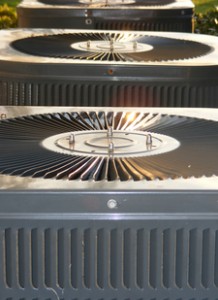An Arizona State University research team - which featured sustainability scientists Matei Georgescu, Alex Mahalov and Mohamed Moustaoui - found that the release of excess heat from air conditioners running during the night resulted in higher outdoor temperatures. This phenomenon not only worsens the urban heat island effect, but increases cooling demands, resulting in a positive feedback loop.
The study - titled “Anthropogenic Heating of the Urban Environment due to Air Conditioning” and published in the Journal of Geophysical Research Atmospheres - used a physics-based modeling system to evaluate the impact of heat emission from air conditioning systems on surrounding air temperature. They found that the effect of "waste heat" from air conditioning systems was more consequential during the night due to the limited depth of the urban boundary layer.
These findings will help to address future energy needs in a more sustainable manner.
